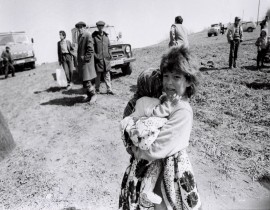Politicon.co
Peace without women? The missing voices in the Azerbaijan-Armenia peace process

Introduction
We are witnessing global ‘culture wars’ between conservative and progressive-minded individuals across the globe. The recent political developments in the United States, a global leader in promoting universal human rights, and the European Union countries have significantly altered the global political and cultural landscape. The rise of conservative-minded individuals globally has caused an alarm about the role of women in society, and their contribution to peace and stability worldwide. The challenges to women’s role in the peace and security fields are particularly evident in the South Caucasus - the region of geopolitical complexities. Despite the remarkable progress made by the women, peace and security community in recent decades, such as Azerbaijan’s efforts to combat gender-based violence, protect vulnerable groups, and promote women’s economic participation through initiatives like the Joint Plan of Action on the Prevention of Domestic Violence and employment programs for young women, however, in the Armenia-Azerbaijan peace process, the persistent absence of women in diplomacy and conflict resolution reflects deeper societal barriers, from deep-rooted stereotypes to structural limitations in the security and diplomacy sectors.
This article will review the global shifting focus on how women and men should behave, how it affected women in the South Caucasus countries and women’s participation in the recent Armenia-Azerbaijan peace process.
Global challenges
The global ideological shift in gender norms makes traditional expectations to shape women’s roles worldwide. The Article by Michael Tesler, John Sides, and Colette Marcellin highlights the growing support for traditional gender norms among the Republicans. Between 2022 and 2024, the percentage of Republican men agreeing with traditional views rose from 28% to 48%, while among Republican women, it increased from 23% to 37%. While these shifts primarily reflect ideological divides rather than actual changes in behavior, women’s participation in the workforce remains strong, they reflect a broader debate over gender expectations. The debate over traditional gender norms is not limited to the United States. Additionally, recent studies indicate a growing ideological divide between young men and women worldwide, particularly within Generation Z. According to Burn-Murdoch (2024), while young women increasingly adopt progressive views, young men are becoming more conservative, leading to stark political and social divisions in countries like the U.S, Germany, and South Korea. This divide, which has been linked to the #MeToo movement and broader cultural shifts, is shaping attitudes on issues such as immigration, gender equality, and racial justice. The long-term implications of this divide remain uncertain, but data suggests these ideological differences may persist across generations. Even political and historical contexts differ, the persistence of patriarchal structures is a common challenge in many regions, including the South Caucasus. In Azerbaijan and Armenia, societal expectations continue to limit women's roles in security and diplomacy, causing their exclusion from high-level peace negotiations.
Challenges affecting women’s participation in WPS communities
The South Caucasus has long been shaped by deep rooted traditional gender norms, where men continue to dominate politics and security. Despite the
The Women, Peace, and Security (WPS) agenda, launched with UNSCR 1325 in 2000 and adopted nine resolutions promoting women’s full, equal and meaningful participation in all areas of peace and security, which structured around four key pillars of preventing violence against women, ensuring their equal participation in conflict resolution, protecting them from discrimination and violence, and improving gender-sensitive humanitarian responses during crises. WPS agenda confirms that sustainable peace is only possible when women’s experiences, leadership, and perspectives are fully integrated into peace process. However, the WPS agenda remains ignored and poorly understood in the region, especially among civil society and policy circles.
According to the Global Gender Gap Index 2024, Azerbaijan ranks 103rd and Armenia 64th out of 146 countries, reflecting inequalities in political and economic participation. Additionally, in Azerbaijan, only 2.7% of
This issue can be addressed through the implementation of both international and national mechanisms. While Armenia has adopted two National Action Plans (NAP) on WPS, the first NAP in 2019 and the most recent one is covering 2022-2024 period, and Azerbaijan adopted one NAP for the period of 2020-2023. However, these documents are rarely taken seriously in practice and fail to reflect the realities of the current post-war environment. There is an urgent need to update these frameworks. Because, the WPS agenda in the region suffers from a lack of institutional commitment, which means there are almost no organizations or expert platforms actively working on women’s participation in peacebuilding and diplomacy. Additionally, women’s involvement, where it exists, remains symbolic rather than effective, reminding the need of expanding implementation. Without real engagement, women, who make up over 51% of refugees, face additional vulnerabilities and causing gender-based power imbalances, particularly in post-war recovery and conflict transformation.
The status of Azerbaijan-Armenia peace process
While progress has been slow, 2023 marked a turning point in advancing the peace agreement. Now, after three years negotiations, Armenia and Azerbaijan have finalized the peace agreement text, which means, focus changes to ensuring inclusive and sustainable peace. However, political and legal challenges remain, particularly regarding Armenia’s constitution and the dissolution of the OSCE Minsk Group, leaving uncertainty around the signing date. However, one crucial question arises: where are the women? When looking back, in the 2023 Brussels and Sochi meetings, and following 2024 bilateral meetings where key discussions on border demarcation and peace agreements took place, the delegations were exclusively male. This absence highlights the systemic and societal barriers preventing women from contributing to peacebuilding at the highest level.
The role of women in Azerbaijan-Armenia peace process, comparing role of women in Armenia and Azerbaijan peace process: how it was in 1990s, and how it is now
The current Azerbaijan-Armenia peace talks, despite their historical environment, have followed the familiar way of male-led negotiations, leaving women largely absent from leadership roles. This exclusion is more than representation, it also limits the scope of peacebuilding efforts.
In the 1990s, several female peace activists, such as Arzu Abdullayeva from Azerbaijan and Anahit Bayandur from Armenia, played crucial roles in conflict resolution despite the dominant masculine norms in security and diplomacy at the time. Together, with the support of their networks, they contributed to the release of approximately 500 prisoners from both sides during the First Karabakh War. However, their efforts remained largely informal and did not lead to systematic or institutional change. Both Abdullayeva and Bayandur, along with other influential women of their time, emphasized that conflict resolution could not be achieved through military means alone.
What can be done in the future?
To ensure a more inclusive peace process, several steps must be taken. Despite global commitments, both Azerbaijan and Armenia should integrate gender mainstreaming into their future reconciliation process by including women in delegations and advisory roles to ensure that women and other marginalized groups have a seat at the decision-making table. This means not only recognizing their perspectives but also institutionalizing their participation through structural reforms. One approach to achieving this is the implementation of quotas in peacebuilding and governance which can help to handle gender disparity and create a more inclusive political landscape. For example, in legislative bodies, representation remains unequal, women hold only 17.4% of seats in Azerbaijan’s National Assembly and Armenia has already implemented 30% quota which resulted 33.6% women participation in Armenia’s parliament. It is important to note that, gender mainstreaming in legislative bodies promotes that women’s and men’s concerns, needs and experiences are considered in the design, implementation, monitoring and evaluation of legislation.
Second, education and mass public awareness campaigns have crucial role, however, lack of gender-specific data and indicators prevents progress in this area. Integrating peace and gender studies as well as soft skills- mentorship and leadership training programs into the national curriculum, can empower women’s contributions to conflict transformation and diplomacy.
Third, it is crucial to support women in entrepreneurship, leadership positions, and professional opportunities, help them to overcome economic and social barriers independently with non-biased recruitment policies. In addition to legal frameworks, gender-sensitive human resources policies is also essential, to ensuring women’s equal access in security and diplomacy sectors. Gender sensitive recruitment includes implementing hiring process which prevents gender bias and ensures transparent promotion criteria. For example, countries like Sweden, Canada and Finland applied legal measures which require institutions to establish gender-balanced hiring committees, targeted mentorship programs, and gender audits in both public and private sector employment.
Now, with the opportunity of finalizing the peace agreement, the South Caucasus, at a critical moment in its history, it is important to understand that the current peace deal does not include participation of women, IDPs issue, and youth in the reconciliation process. In the future, both Azerbaijan and Armenia could consider adopting additional frameworks, either through bilateral agreements or platforms, that include the participation of women, youth, IDPs, and conflict-affected communities in peacebuilding. It could be the development of a joint strategy bringing together women from both sides to build dialogue, trust, and shared visions for peace.
Moreover, it is also crucial to support and fund women’s organizations in both countries, especially when considering the current lack of expertise and institutional capacity in the field of women’s participation in peacebuilding and diplomacy. These organizations play a pivotal role in grassroots peacebuilding and can significantly contribute to long-term conflict transformation. Investing in capacity-building measures and leadership development for women, not only can enhance their contributions to peace efforts, but they can also be better prepared to take on decision-making roles in the future, creating a more sustainable and inclusive peace process for the region. The region’s future depends not just on political agreements but on the participation of all members of society, including women, in shaping a stable and positive peace.
![]()
- TOPICS :
- Conflict and peace
- Foreign policy
- Society
- REGIONS :
- Russia and CIS


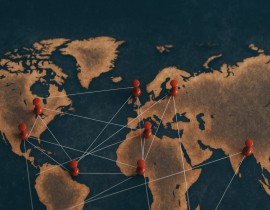
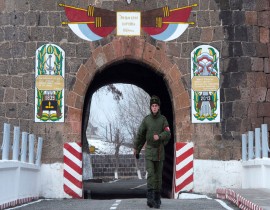
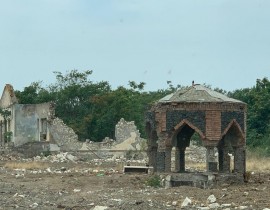
png-1748065971.png)
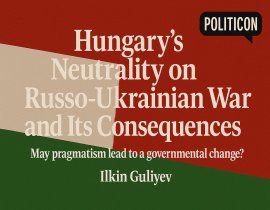

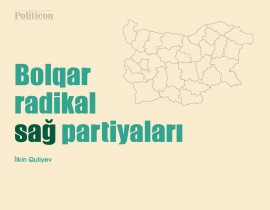
jpg-1599133320.jpg)
